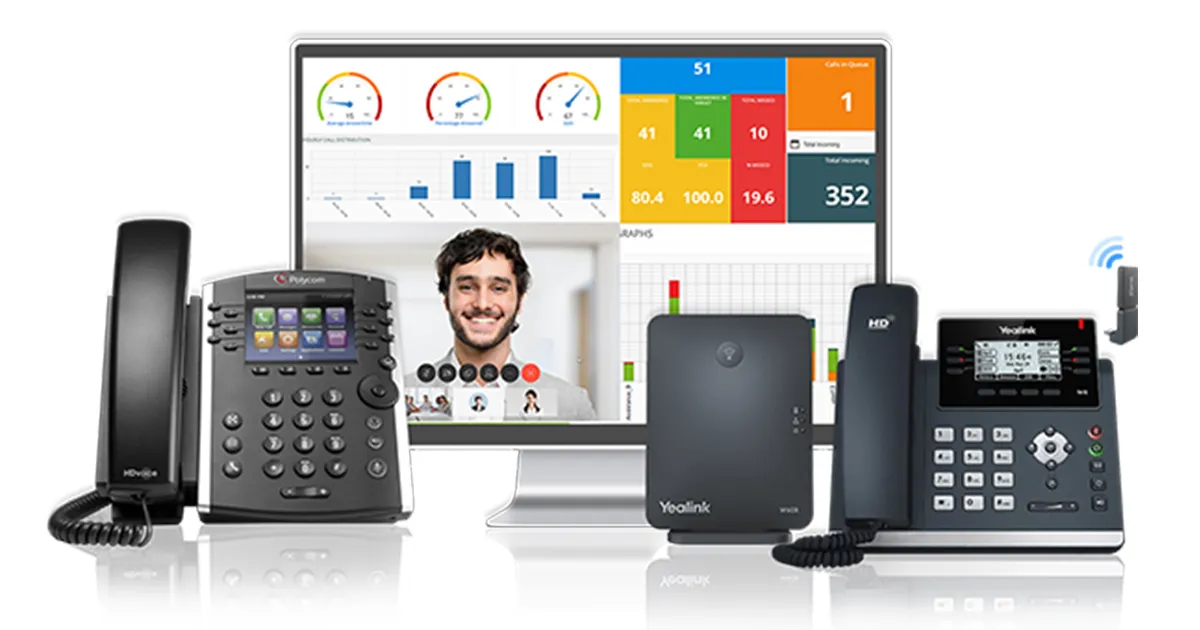The digital transformation movement is expanding quickly, and even if your business doesn’t yet have a clear digital transformation strategy (which it should)—chances are you’ve already started down that road by using cloud-based applications like Google Workspace, Salesforce, Dropbox, or something similar. This movement is predicted to grow at a 23% CAGR.
Moving your traditional phone system to the cloud is the obvious next step. This step is especially important and timely if your business still relies on a patchwork of different message, conferencing, and call center software (even freeware!) cobbled together as your approach to a communications strategy.
Why It’s Worthwhile to Set Up a Virtual Business Phone System?
Because virtual phone systems are cloud-based, users can place and receive calls using a laptop or mobile device from any location. Compared to installing a hardwired multi-phone system at a physical place, it is less expensive.
For small business owners who don’t want pricey physical infrastructure, this is particularly crucial.
Additionally, if you locate a provider with better pricing or services, switching is simple. That kind of adaptability is invaluable. If you owned a physical facility, switching service providers would be quite expensive.
Compatibility with remote workers is a different demand you can meet. Accessibility is simply provided by virtual phone systems without losing the essential functions your team will require.
Setting up a virtual phone system will, all things considered, provide your business with superior capacity and communication at lower prices than you could anticipate.
What is the Process of a Virtual Phone System?
Your virtual phone system can use your existing hardware to work anywhere, unlike traditional phone systems that can only be used in one place. If you have an internet connection, you can place and receive phone calls.
Calls between toll-free and local phone numbers and users are connected through a virtual phone system.
There is a lot of technological magic that occurs before your phone rings. The most crucial thing to keep in mind is that your business doesn’t need to fiddle with technology because the virtual phone system provider takes care of that for you!
In order for these virtual phone systems to work, all of the telecom infrastructure and connections to the Public Switched Telephone Network, or PSTN, must be managed. Just for connectivity, that is.
Voice over Internet Protocol (VoIP), which replaces hard-wired phone lines with an internet connection, enables your virtual phone system to function. No matter what phone number you contact, it exists at the center of a virtual phone system that converts your calls from analog sound to VoIP codecs to produce greater call quality.
Boost Your Team’s Cooperation
Through basic capabilities like call transfers and call forwarding, traditional phone systems let you communicate with your team, but that’s about it. Beyond that, phone communication becomes a solitary activity.
With the help of virtual phone systems, your team may work in a completely collaborative setting. You may simply get in touch with your team members by calling or texting them, or you can exchange their contacts along with crucial context-setting notes.
You can also use business phone systems to:
- Share phone numbers so that anyone present can answer incoming calls or carry on a text chat.
- Mention your coworkers in any conversation to start an internal thread and work together on communication.
- Share contacts in two clicks with particular teammates or shared inboxes.
Cost Saving
On-premises technology providers have a reputation for charging organizations exorbitant prices for installation, voice services, and even the most basic system connections. The hardware in your closet isn’t helping your budget, let’s face it.
Do you require voice transcription and call recording? Access to the PSTN? integrations with other business-critical tools, such as Salesforce, HubSpot, or even Google Workspace? No issue… as long as you’re prepared to spend a significant amount of money.
On the other side, cloud solutions don’t need to be purchased, maintained, or upgraded, thus your total cost of ownership (TCO) is significantly reduced. Your teams may collaborate using the equipment you currently have. And maybe most significantly, the money you used to spend on your IT closet now directly supports your company.
Access Affordable Prices for Small Businesses
The initial expenditures for traditional corporate phone systems, particularly landlines, can be extremely high. You frequently can’t avoid spending a lot of money on gear or setup costs. You must also retain an IT specialist on staff if you have an on-premise office phone system so they can assist with maintenance and debug any problems.
Additionally, you might need to completely replace your hardware and restart the setup process if you wish to update or upgrade your system.
Your team can save money on business phone systemsby Vonex thanks to virtual phone systems. Beyond the typical minimal monthly fee per user charged by VoIP companies, you may not need to pay any additional money.
You can run your app on already-existing devices. Additionally, your VoIP provider manages your hardware configuration in the cloud, and providers frequently offer free customer assistance, so you don’t need to pay an IT team merely to maintain your phones operational.
Updates only require a download, whereas upgrades only require changing your payment plan.

